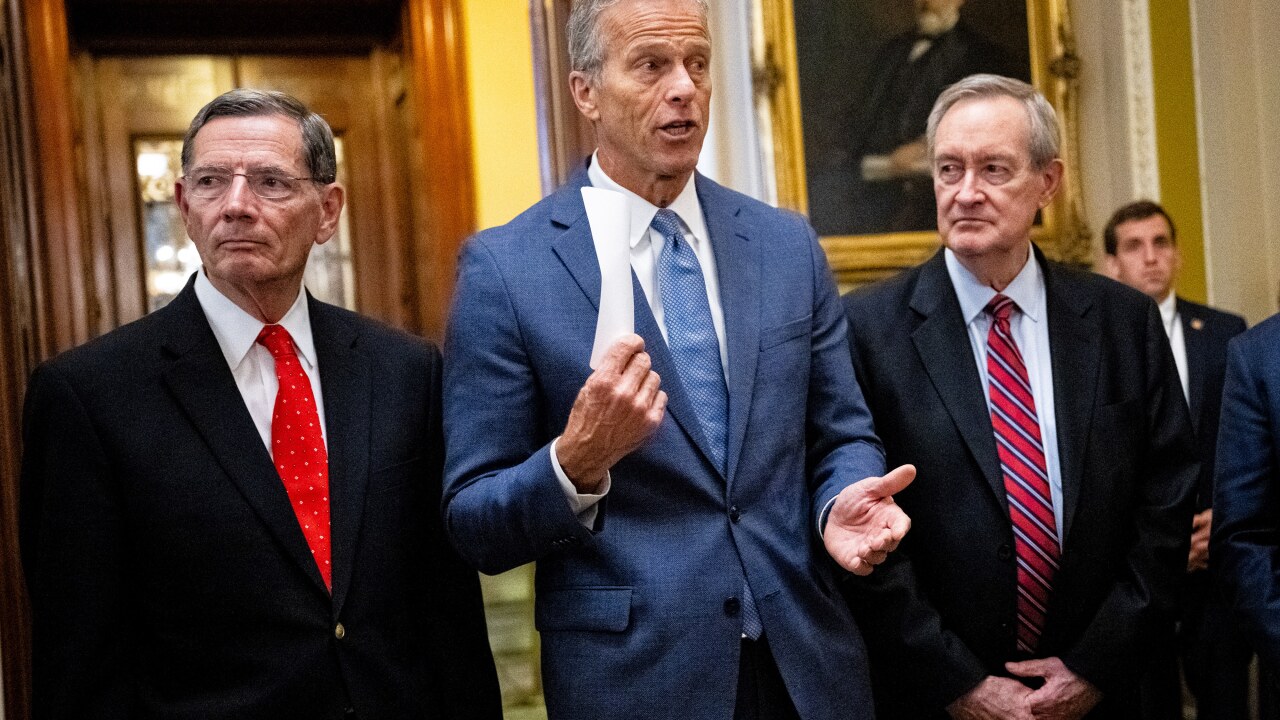WASHINGTON — Legislation to beef up consumer protections in credit card and overdraft programs is picking up momentum as the political fallout from a string of bailouts puts bankers increasingly on the defensive.
The House financial institutions subcommittee plans to begin discussion today of two bills introduced by Rep. Carolyn Maloney, D-N.Y., that would rein in card practices and overdraft programs, and it is eyeing May 1 as a potential day for a subcommittee vote.
Growing anger over financial company bailouts and executive bonuses paid by American International Group Inc. is likely to help the bills win speedy passage, industry observers said.
"Efforts to enact restrictions on overdraft practices and credit card fee practices are certainly getting a boost from the overwhelming tide of populism sweeping through Congress," said Jaret Seiberg, a policy analyst at Washington Research Group, a division of the Wall Street firm Concept Capital. "Each day that the headlines are full of reports of AIG bonuses and bank bailouts makes it that much tougher to stop the overall legislation."
The banking industry is fighting both bills.
It argues that the Federal Reserve and other regulators have already taken substantial action by issuing sweeping rules to overhaul card practices. The central bank is also discussing giving consumers greater choice in overdraft programs under a proposal open for comment until the end of the month.
Maloney's card bill would largely emulate many of the regulatory restrictions, including a ban on double-cycle billing, and increasing bill payment time. But it would go further by eliminating universal default and speeding up implementation to 90 days from bill enactment, rather than the mid-2010 date when the regulations are to take effect.
The overdraft bill would bar banks from enrolling people in overdraft protection plans unless they opted in, limit fees and require that overdrafts be described in an annual percentage rate. It would also require informing consumers when transactions like automated teller machine withdrawals or debit purchases could cause an overdraft, although bankers say they lack the technology to do this.
The industry hopes to significantly scale back the bills by persuading lawmakers to defer to the Fed, but Maloney said Wednesday that technological shortcomings should not block a needed consumer protection.
"We know that, as recently as a few years ago, debit cards were denied at the point of sale due to insufficient funds," she said in an e-mail. "What is clear is that, unless it is mandated, there will never be an economic incentive to further develop this technology and we will forever hear the argument that the technology does not exist."
The House passed the card bill last year. An attempt to pass the overdraft bill stalled in the committee in 2007 and it is unclear whether Maloney now has sufficient support for passage. A case in point is Rep. Luis Gutierrez, chairman of the financial institutions subcommittee. On Wednesday, the Illinois Democrat said he has some concerns about speeding up credit card reform implementation and hastily passing an overdraft bill.
"I am a co-sponsor of [the card bill], but I do have some concerns over the shorter implementation period contained in the current version," Gutierrez said in an e-mail. "I am anxious to hear from our panel of regulators about what is feasible and reasonable in terms of implementation of credit card reform measures included in the UDAP rules and H.R. 627."
"We may need to slow things down a bit when it comes to the overdraft protection bill," he added.
Despite bankers' efforts to weaken or kill the measures, consumer advocates who have been lobbying hard for such reforms for years said they see a golden opportunity. "I feel like the wind is more at our backs now," said Kathleen Day, a spokeswoman for the Center for Responsible Lending.





